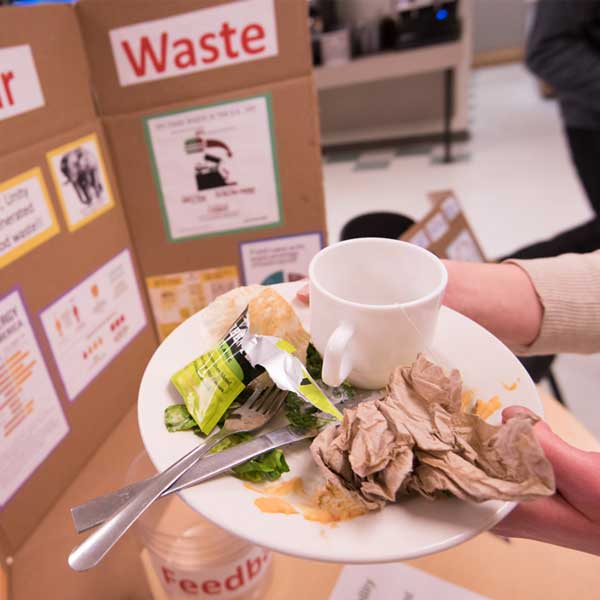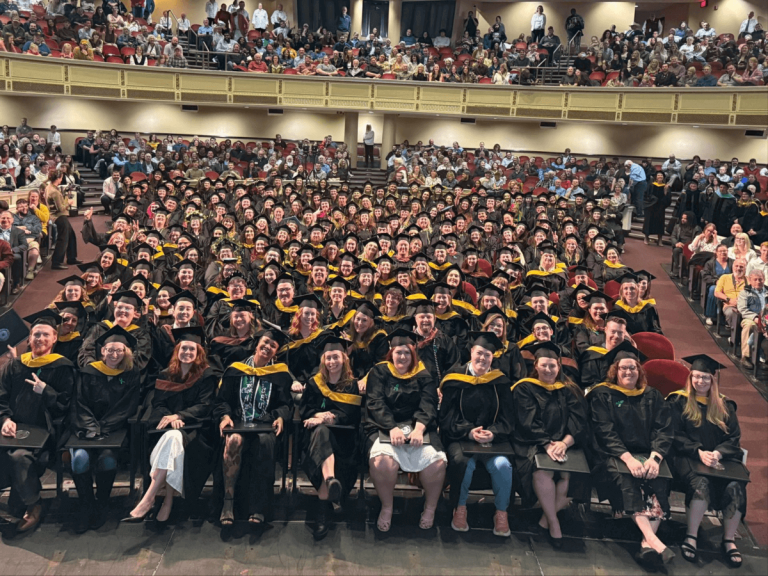
Unity College is announcing two new partnerships and reaffirming a third in celebration of Campus Sustainability Month in October.
Chief Sustainability Officer Jennifer deHart said Unity College established partnerships with Agri-Cycle and the Post Landfill Action Network while rededicating itself to its long-standing affiliation with the Association for the Advancement of Sustainability in Higher Education, known by many as the top national group advocating for sustainability on college campuses.
The moves come as the school, known as America’s Environmental College, earned high marks for academics and food service sustainability from Sierra Magazine in its annual “Cool Schools” listing.
“At Unity, we are constantly looking for new ways to do the right thing for our students, our community, and our planet. Like-minded partners who share our sense of sustainable responsibility help us multiply our positive impact,” Unity College President Dr. Melik Peter Khoury said.
DeHart said Unity College Dining Services has signed a new partnership with Agri-Cycle, a Maine company that collects organic waste and delivers it to Exeter Agri-Energy, an $8 million digestion facility in Exeter, Maine.
“Agri-Cycle takes all of our food service organic waste from Wyman Commons, the Student Center, and catered events across all facilities, and converts them to methane gas to generate energy in a 1-megawatt power plant,” she said. “Diverting food from the landfill reduces our waste footprint and turns what we used to consider ‘waste’ into a valuable alternative energy resource.”
DeHart estimates the Agri-Cycle partnership may divert up to 10 tons of organic matter from the college’s landfill trash each year, as students deposit food waste in collection containers marked “Organics” around campus and at events.
“It’s been a seamless transition for our students, who are always eager to use the most environmentally friendly methods of waste disposal,” Unity College Director of Dining Services Lorey Duprey said. “We have unique students at Unity College. They don’t need a lot of hand holding when it comes to adapting to the best way to deal with food waste.”
Exeter Agri-Energy and Agri-Cycle recently won the Community Climate Champions award from Maine Conservation Alliance for their ability to generate electricity and provide agricultural compost by recycling food waste by the ton.
In a separate move, Unity College in September became a member organization of the Post Landfill Action Network (PLAN), which began in 2011 as a student-led move-out program at the University of New Hampshire.
“We love this type of entrepreneurial thinking, and we view this program as a valuable service to provide to our own students,” deHart said.
The program includes step-by-step advising on setting up new programs, program-specific guides to set up new zero-waste programming, assistance on hard-to-recycle items, certification trainings, skill development, and more.
“This is a great example of student leadership, seeing an unmet need and figuring out how to make a change,” Unity College Chief Student Success Officer Dr. Sarah Cunningham said. “When our students graduate, we want them to take these problem solving skills out into their workplaces where they can have an impact on large and small scales.”
A longtime member of the Association for the Advancement of Sustainability in Higher Education (AASHE), Unity College recently reaffirmed its membership by committing to attend training sessions and to implement best campus practices.
“Unity College recognizes the importance of developing understanding of institutional sustainability issues and strategies, so almost all of our senior leaders — the president, chief academic officer, chief information officer, chief of staff, chief sustainability officer, chief student success officer, chief fundraising officer, and chief budget officer — have attended the AASHE Annual Conference in the past two years,” deHart said.
Founded in 2006 as more and more higher education institutions sought greater sustainability support, AASHE offers a range of resources, including its influential Sustainability Tracking, Assessment & Rating System (STARS) rating system.
Created in 2010, STARS provides a transparent, self-reporting framework for colleges and universities — from community colleges to research universities, and from institutions just starting their sustainability programs to long-time sustainability leaders — to measure their sustainability performance. Some 786 institutions have registered to use the STARS Reporting Tool.
Unity College earned a Gold rating in 2014 and the next submission is due in 2017. Unity College is striving to earn a Platinum rating by 2019.
Many of the elements in STARS are used in important external rankings. For example, based in part on STARS data, Unity College was listed among the Top 10 colleges nationally in two important categories — No. 10 for Food and No. 5 for Academics — on Sierra magazine’s latest list of “Cool Schools.”
“When students and parents and donors consider Unity College, they want to know that they’re investing in industry-forward practices and getting leadership in all areas of organizational sustainability,” Khoury said. “We’re not perfect. But every day, we get a little bit better at living the mission, and in doing so, we are equipping students and shining a beacon in a world that sorely needs it.”
“Living the mission requires having a common language to articulate how sustainability science manifests across the institution,” deHart said. “During Campus Sustainability Month, we are introducing new students to our sustainability principles, which iterate the campus mission statement in terms we can all understand.”
Unity College welcomed 705 full-time students this 2016-17 academic year, shattering its previous enrollment record of 638 full-time students from Fall 2015 — a 10.5 percent year-over-year increase.
“More and more — whether it’s students, parents, counselors, or the rating services — people are coming to know Unity College as a living, learning laboratory of environmental sciences that is second to none,” Khoury said.



